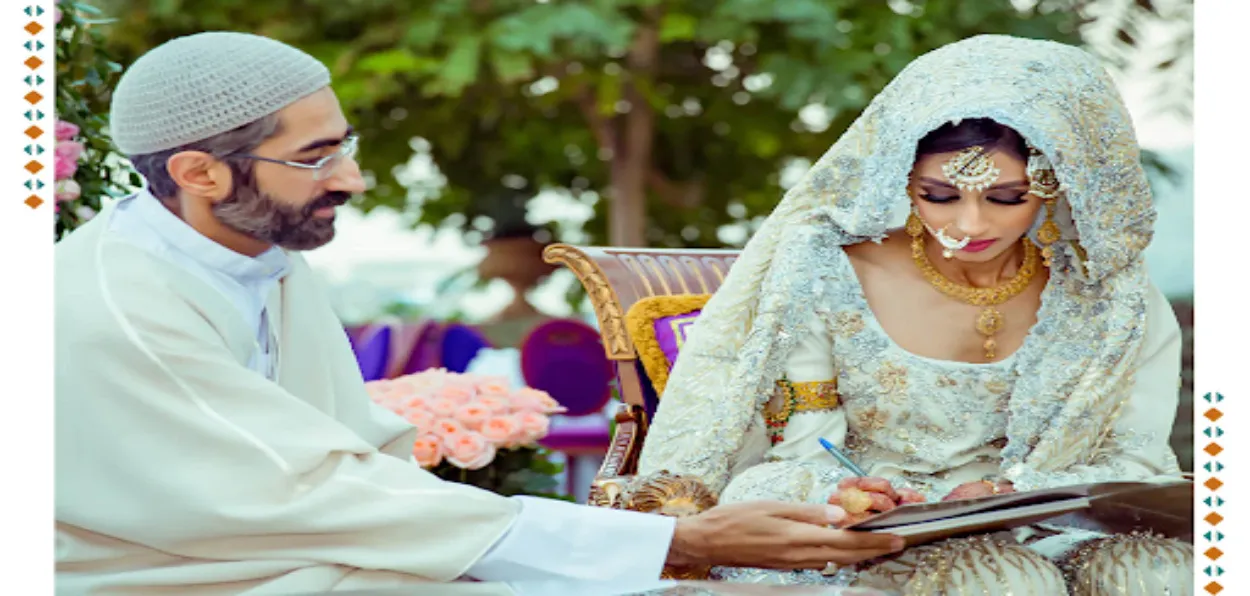
Eman Sakina
Dowry, the practice of demanding money, property, or expensive gifts from the bride or her family at the time of marriage, has become a social evil in many cultures. It not only burdens families financially but also leads to exploitation, abuse, and sometimes even the loss of life. Islam, however, has always discouraged dowry in every form and instead established a system of fairness and dignity in marriage.
The Concept of Marriage in Islam
Marriage in Islam is a sacred bond (Contract) built on love, mercy, and mutual respect. Allah describes it in the Qur’an as a means of tranquility and compassion:
“And among His signs is that He created for you spouses from among yourselves so that you may find tranquility in them, and He placed between you affection and mercy.” (Qur’an, 30:21)
This verse emphasizes that marriage is meant to bring peace and harmony, not to become a source of financial burden or oppression.
The Islamic Obligation
In Islamic law, it is not the bride’s family who is responsible for giving wealth at the time of marriage; rather, it is the groom who must offer a mahr (bridal gift) to his wife. Allah commands: “And give the women their dowries (mahr) graciously. But if they, of themselves, remit any part of it to you, then enjoy it with good cheer.”(Qur’an, 4:4)
The mahr is a right of the bride, not a price for marriage. It symbolizes respect and commitment, and it belongs entirely to her. This is in complete contrast to the cultural dowry system, where the bride’s family is pressured to give wealth, often leading to exploitation.
The Prophet’s Teachings Against Dowry
Prophet Muhammad lived by example in discouraging dowries. He married off his daughter without imposing material burdens on her husband. For instance, when his beloved daughter Fatimah married Ali ibn Abi Talib (RA), her mahr was modest, and no dowry was demanded from her side. The Prophet said: The best of marriages are those that are easiest.” (Sunan Ibn Majah, 1847)
This hadith reflects that simplicity, not wealth, should define a marriage. Islam discourages extravagant demands and encourages families to focus on piety, character, and mutual compatibility.
Why Islam Discourages Dowry
Financial Burden on Families – Dowry often forces poor parents into debt, making daughters feel like a “burden.” Islam abolishes this injustice by placing responsibility on the groom, not the bride’s family.
Exploitation of Women – In societies where dowry is practiced, women are sometimes mistreated if the dowry is considered “insufficient.” Islam protects women from such humiliation.
Violation of Justice and Equality – The dowry system turns marriage into a transaction. Islam teaches that men and women are partners, not commodities.
Encouragement of Greed – Demanding dowry reflects materialism and greed, qualities Islam strongly condemns.
Islam Promotes Simple Weddings
The Prophet encouraged Muslims to make marriage easy and affordable. He said: “When someone with whose religion and character you are satisfied asks for your daughter in marriage, accept his proposal. If you do not, there will be turmoil and great corruption on earth.” (Tirmidhi, 1084)
This teaching emphasizes that faith and good character are the true foundations of marriage—not wealth or dowry.
Modern Relevance
In many Muslim societies, the dowry system has unfortunately crept into practice, causing great suffering. Families must remember that this practice is un-Islamic and a distortion of the true spirit of marriage in Islam. By returning to Islamic principles, marriages can once again become a source of happiness and not a burden.
ALSO READ: Lalbaugcha Raja's ornate grand curtain, foot cushion made by Muslim artisans
Islam has always discouraged dowries because it contradicts the essence of justice, mercy, and simplicity. Instead, it commands men to honor women through mahr and treat them with dignity. To eradicate this harmful custom, Muslims must revive the Sunnah of the Prophet and encourage marriages based on faith, love, and compassion rather than material demands. By doing so, we uphold the Qur’anic vision of marriage as a bond of tranquility and mercy.
